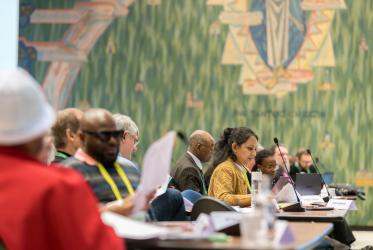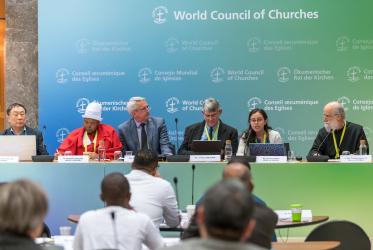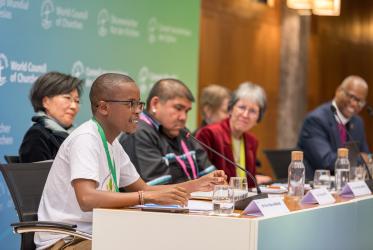Displaying 1 - 20 of 1351
Is health the same for all?
17 April 2024
WCC condemns killing of aid workers in Gaza
03 April 2024
WCC expresses deep concern for human rights in Haiti
28 March 2024
Words of steadfastness ring from the rubble
21 March 2024
WCC at the Commission on the Status of Women
09 - 22 March 2024















